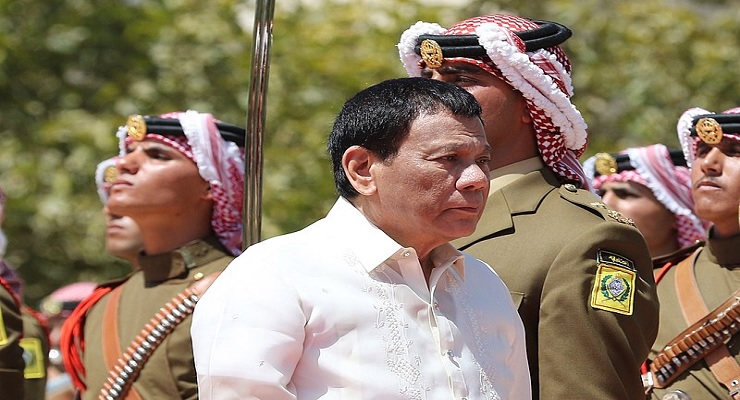
From Voice of America
Philippine President Rodrigo Duterte harshly criticizes a lot of his critics, especially skeptics of his deadly anti-drug campaign. But he got so fed up with one journalist that his government had her arrested, experts suspect. Now Maria Ressa, executive editor of the news website Rappler.com, is facing cyber-libel charges.
Observers say the Duterte government, now in its third year, objects to Rappler.com’s numerous articles criticizing the government’s anti-drug campaign and the problems in the Philippine armed forces, among other sensitive topics.
“Some of these issues are really sensitive to (the presidential office) Malacanang, like the internal problems within the military, and of course these tend to irritate or even aggravate the administration,” said Ramon Casiple, executive director with the Philippine advocacy organization Institute for Political and Electoral Reform in Metro Manila.
The Rappler.com executive editor, who is also its CEO, spent a night in National Bureau of Investigation custody until a Manila judge let her post $1,905 (100,000 pesos) in bail Wednesday, her news website said. Ressa has been chronicling her legal troubles on Twitter, including details on her posting of bail. Rappler did not respond to VOA’s request for comment for this report.
Critics with pre-existing legal problems are easiest to get and Ressa was one, said Eduardo Araral, associate professor at the National University of Singapore’s public policy school.
Her company Rappler Inc. was already facing tax evasion charges that could shut it down. “There are many Duterte critics out there, but they don’t have the vulnerabilities like Maria Ressa, so Duterte has no handle against other critics,” Araral said.
Sensitive stories
Rappler published stories critical of the Philippine government over extrajudicial killings in his anti-drug campaign and gaps in the impoverished country’s economic growth.
The media outlet’s reporting on the Philippine military has questioned officials for considering a renegotiation of the mutual aid treaty with the United States and accused Duterte of abandoning his leftist sentiments in a fight now against communist rebels.
Ressa, a former CNN investigative reporter who co-founded Rappler six years ago, had contacts in government who helped the news website get stories, analysts believe.
The president got fed up with it all, said Fabrizio Bozzato, associate fellow with Taiwan Strategy Research.
“Rappler was certainly a thorn in the flank of the Duterte Administration,” Bozzato said. “I understand that he doesn’t take criticism very lightly, so the move against Maria Ressa was to be expected.”
The Philippine justice department charged Ressa and her news outlet on February 6 over an article seven years ago about possible ties between a Philippine businessman and a former president of the Philippine Supreme Court. She faces up to 12 years in jail if convicted of cyber-libel.
Fellow journalists and overseas human rights groups have defended Ressa since her arrest.
The charges she faces are “not justice, but an attempt to gag a media outlet and editor recognized internationally for their professionalism and independence,” Christophe Deloire, secretary-general of the advocacy group Reporters Without Borders, said in a statement.
Getting tough on the media
The Philippines ranked 133 of 180 countries in Reporters Without Borders’ 2018 World Press Freedom Index.
Duterte normally targets critics with verbal criticism or through legal means, political experts say.
He called former U.S. President Barack Obama a “son of a whore” in 2016 over Obama’s comments about the Philippine anti-drug campaign.
Outspoken opposition Sen. Leila de Lima has been quoted saying the government made up charges to arrest her in 2017. She was charged with harboring drug lords.
Leave a Reply